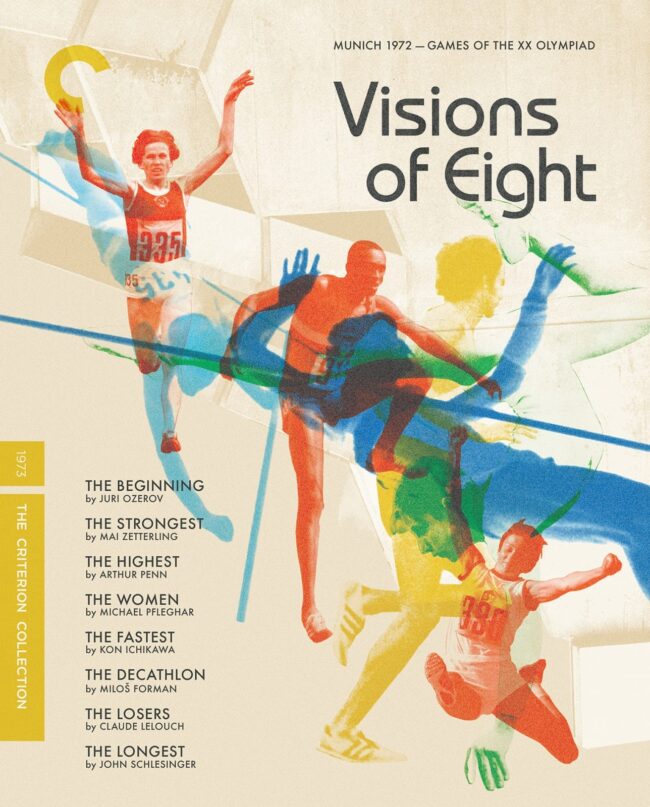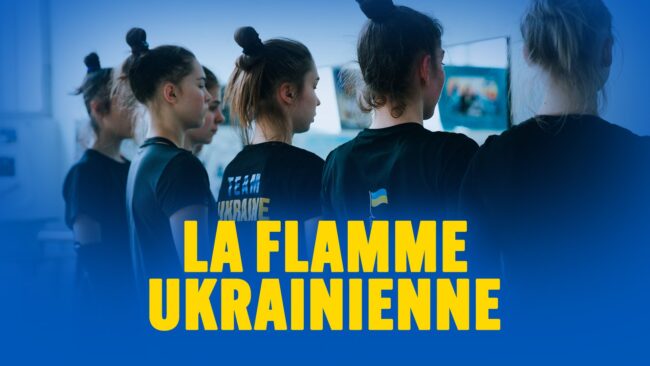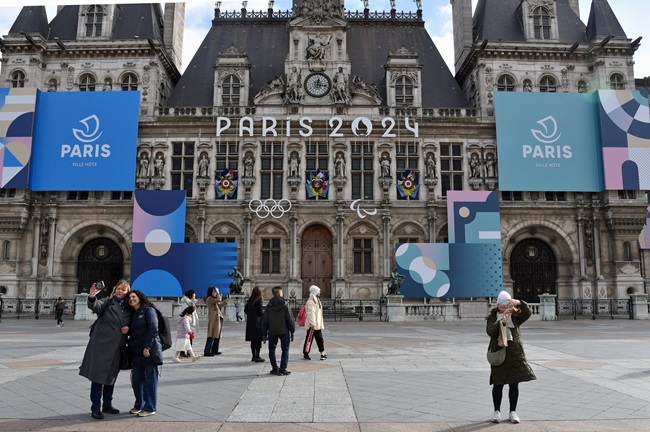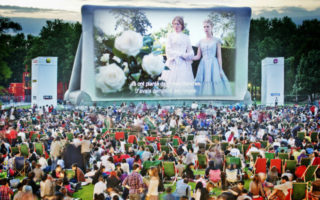12 Must-See Movies About the Olympics
There’s always enormous media coverage of the Olympics and this year’s Paris Games will be no exception. This coverage doesn’t always translate into real films — or memorable ones.
Genuine films set in the Olympics have stressed not only human drama but politics, or both. Herewith is a selection of movies relating to the Olympic Games, with various degrees of quality and relevance to the core ethos of the Games.
1. Film of the first modern Olympics:
The first modern Games were in 1896, only a year after the invention of the cinema. In both cases Frenchmen were involved. Baron Pierre de Coubertin was 31 when he suggested reviving the ancient Olympics in 1894, and two years later the first modern games were held in Athens (14 nations participated). In 1895 the Lumière brothers introduced the idea of motion pictures projected onto a screen. The British Film Institute has grainy footage, supposedly of the first games (available on YouTube). Generally speaking film of the first modern games could more accurately be described as footage, like the generic documentaries and TV coverage that the mediascape has featured for decades. Period newsreels showed events from the 1900 (Paris), 1904 (St. Louis) and 1908 (London) Olympics. In addition, a dramatized mini-series about how the modern Olympics came about appeared in 1984: The First Olympics: 1896 (directed by Alvin Rakoff). The mini-series is a docudrama but has been criticized for a number of historical inaccuracies.
2. Olympiad, directed by Leni Riefenstahl (1938).
If most documentaries fit into the category of footage or coverage, this German film about the 1936 “Nazi” Olympics held in Berlin qualifies as a real film, as art, and as notorious propaganda. Art doesn’t necessarily mean good art. Riefenstahl’s evocations of Greek myth as the torch is lit and carried to Berlin are resonant but cheesy. Shots of Hitler and his fans are propagandistic hackwork. On the other hand she has a genuine feeling for the sensuality of bodies of whatever color or ethnicity (always shot separately, of course, a kind of aesthetic apartheid). Using propagandistic techniques for non-propagandistic purposes, to depict the thrill of sports, was innovative and exciting. The highlights for modern viewers are unexpectedly stirring moments, especially track and field star Jesse Owens’ magnificent performances, comically outdistancing his opponents. There’s also the image of a victorious American athlete, a Marine, saluting jutjawed as the Star- Spangled Banner plays against the flag — while a German gives the fascist salute in what feels like a premonitory combat of wills after the athletic combat.
3. Chariots of Fire (1981):
This movie is a triple blast from the past. It incarnates the meticulous classical style of 1980s British cinema led by Merchant-Ivory, though the film was directed by Hugh Hudson (David Puttnam, who made The Mission and The Killing Fields, was a producer). It also features plush synth music by Vangelis, who won an Oscar for his
score. The story is a look back at the 1924 Olympics. The film sensitively depicts the
friendship of two British athletes, Harold Abrahams, a Jew who had to overcome antiSemitism, and Eric Liddell, a Scot whose devout Christianity conflicted with the winning-is-the-only-thing attitude already beginning to contaminate sports.
4. Cool Runnings (1993):
This film became a cult favorite for its outlandish premise, and beloved because that premise just happened to be true. A team from Jamaica, a tropical island, competed in the 1988 Olympics not for swimming, diving, beach volley or even water polo but for bobsledding. It doesn’t much matter for the film’s feel-good cred that it strayed from the actual facts, and that while the story, characters and music were Jamaican, it was directed by an American, produced by Disney and was pretty much a comedy vehicle for John Candy.
5. Munich (2005)
Steven Spielberg’s film didn’t deal directly with the Munich Olympics. It wasn’t about the attack by Palestinian terrorists, the agonized negotiations, and the ultimate raid by West German police that resulted in the deaths of the hostages. It wasn’t about the debate afterwards about whether the remaining games should have been cancelled out of respect for the victims. Instead it was about the Israeli government’s decision to create a counter-terrorism cell to track down the terrorists responsible and eliminate them. It’s a thoroughgoing assassination procedural with moments of great suspense, also marked by tortured soul-searching on the part of some of the characters about whether vengeance is really justice, about how it gnaws at the psyche of the avengers, and the “collateral damage” that really means killing innocents.
6. Tokyo Olympiad (1965):
Kon Ichikawa filmed this documentary about the 1964 Tokyo Olympics. It’s more alive and human than Riefenstahl’s work, offering colorful pageantry and vivid views of Japanese scenery. Like Riefenstahl, perhaps even influenced by her, the director expertly searched for interesting perspectives and effects. And there’s a strong political subtext: the return of Japan as a great power and a respectable one at that. The film is a startling time machine in some respects: the appearances by Emperor Hirohito, the unification of East and West German teams presented as geopolitical novelty, the delegation from the UAR (United Arab Republic, the short-lived union of Nasser’s Egypt and Hafez Assad’s Syria). On the whole an enthralling film available on YouTube.
7. Visions of Eight (1973):
Producer David Wolper had a brilliant idea: Instead of producing one unified documentary on the 1972 Olympics to make an omnibus film, an anthology. He brought together eight filmmakers, some of them big names, others less known, to make vignettes on a particular theme. Some were visionary in an impressionistic sense, weaving together footage and images into a collage, leaving the unifying ideas to the viewer. Some had more definite themes: Michael Pfleghar directed a vignette called The Women, spotlighting female athletes at a time when they were relegated to second class (though gymnast Olga Korbut was a great star of that Olympics), and the celebrated French director Claude Lelouch filmed a self-explanatory vignette called The Losers. The film won a Golden Globe but its reception was hurt by the terrorism that marred the Munich Games (and which it barely mentions). This film is also available on YouTube.

Visions of Eight
8. Personal Best (1982):
When this film came out it wasn’t considered an “Olympics film”. Rather it was supposed to be a breakout in several other ways: A mature film featuring a lesbian relationship, Mariel Hemingway’s first starring role (after her acclaimed supporting role in Manhattan), and legendary screenwriter Robert Towne’s directorial debut. It wasn’t quite the breakout in any of these areas, but it was a respectable effort that gained a footnote in American film history. (Towne died this month at age 89.)
9. Miracle (2004):
It’s hard to imagine now how for years the Olympics were a Cold War competition between East and West, mainly between the US and USSR, with fretfully observed medal charts. Those were the days when the Games were supposedly strictly amateur but the Communist bloc subsidized their athletes, though they were not allowed to
compete professionally. People speculated about whether Cuban boxer Teofilo Stevenson was perhaps greater than Ali. Basketball was “our” sport, but since NBA players could not participate, the games remained competitive. On the other hand, ice-hockey was “their” sport so Americans could hardly hope to compete with the Soviet team … until they did. Miracle recounts the story of the American team’s upset of the Soviets and features a much-praised performance by Kurt Russell.
10. Asterix at the Olympic Games (2008):
This all-star installment of the Asterix franchise directed by Frédéric Forestier and Thomas Langmann wasn’t too well-received. Our heroes Asterix and Obelix go to the games and do battle with Brutus, son of Julius Caesar (Shakespeare was obviously not the source material). There’s also a romantic subplot. Despite negative reviews the movie, which starred Gerard Depardieu and Alain Delon among others, was a box office success, even outside France.
11. L’esprit Coubertin (The Coubertin Mind-Set, 2024)
Another French exercise in Olympic farce, just in time for this year’s games. Directed by Jérémie Sein (his first film), L’Esprit Caubertin recounts the adventures of Paul Bosquet, a champion target shooter whose ambitions aim at bringing France its only Olympic success, but also bring him into contact with a gallery of comic grotesques. The movie at least features two talented actors, Benjamin Voisin, a César-winner and Emmanuelle Bercot. It opened last May on the day the Olympic flame arrived in France but quickly went to streaming.
12. La Flamme Ukrainienne (2024):
This documentary was directed by two French filmmakers, Benjamin Montel and Antonin Boutinard Rouelle, but concerns the situation in Ukraine. “Flame” has several meanings here: the literal flames in a war-torn country, the burning determination of the Ukrainian people, and the symbol of the Olympics. It portrays athletes training for the Paris games while having to deal with the more immediate and deadly ordeal of the war. This film was shown on French television and is also available on france.tv,
a free on-line platform.

La Flamme Ukrainienne
Lead photo credit : Paris Olympics. Photo: Conall/ Flickr
More in cinema, Olympics, Paris films, Paris Olympics




